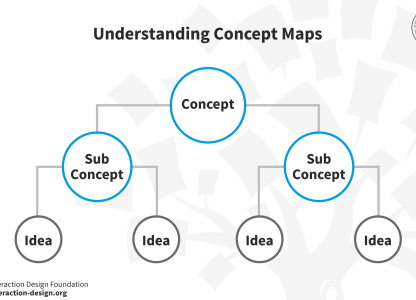The study investigates the effectiveness of retrieval-based concept mapping as a learning activity for high school students, (14-18 year olds). That this learning activity promotes the construction of coherent mental representations of to-be-learned materials.
Students received concept mapping training in their classroom groups, involving three steps. Firstly, they were briefed on concept maps. Next they learned how to create concept maps. And third, students practiced creating their maps from a different text in pairs, with supervision from researchers and their usual teacher. The training lasted about an hour.
Students received brief training in concept mapping and engaged in a sequence of two retrieval activities: free recall (the more common retrieval task) and concept mapping. Results revealed that creating a concept map before free recall significantly improved performance on a delayed learning test compared to the reverse sequence, despite lower success rates during concept mapping practice. Notably, this is retrieval out in the wild, in classrooms, as opposed to highly controlled settings, if relatively small sample size.
What do teacher need to know?
For teachers, the research hints at the potential benefits of incorporating concept mapping as an initial learning activity. More importantly, that beginning with concept mapping and following that up with free recall (by writing paragraphs) teachers may enhance conceptual learning from educational texts.
Second, that paragraph writing may better predict responses to verbatim questions whereas successful concept mapping retrieval may be a better predictor of responses to inference questions, suggesting the importance of varied cognitive processes involved in different types of questions. It is certainly worth considering the sequence and combination of learning activities.
It is also good to read researchers pushing the notion of “tests as knowledge modifiers and learning rather than just as assessment tools.”



